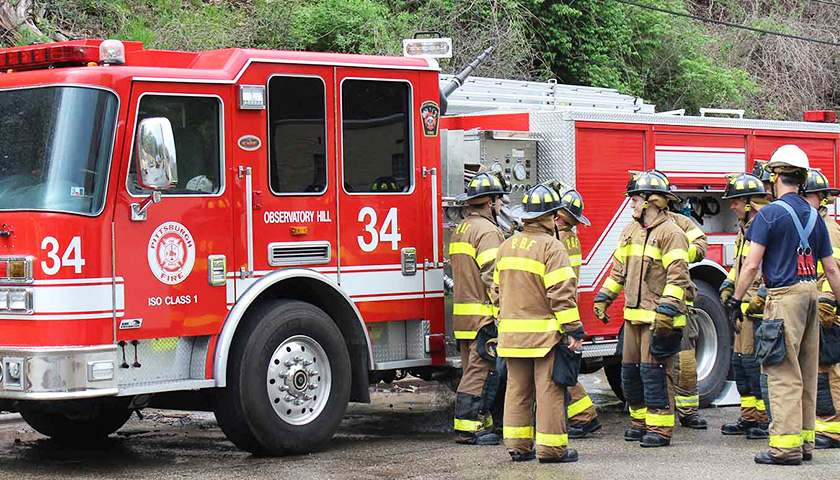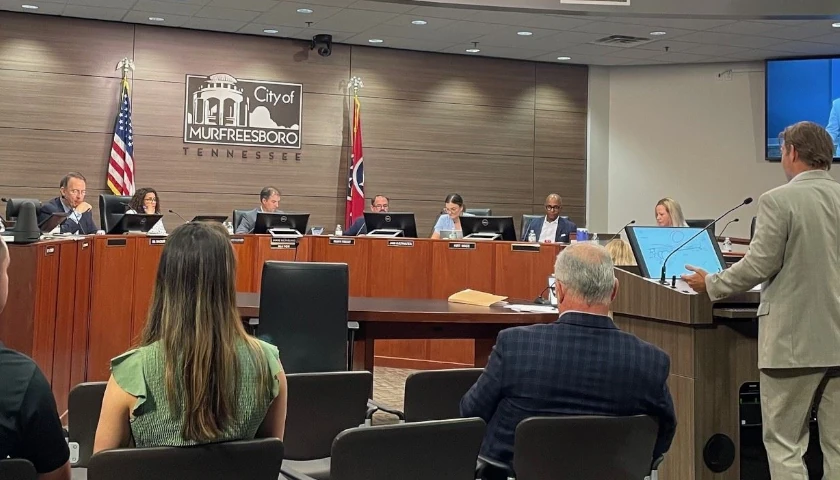by Anthony Hennen
Union disputes in Pittsburgh over residency requirements for city workers have weakened requirements for police and firefighters to live in the city proper.
A policy brief from the Allegheny Institute for Public Policy detailed the shift away from residency requirements. Pittsburgh voters approved an amendment to the home rule charter in 2013 to require city residency for all municipal workers. However, a union grievance weakened that requirement for firefighters.
After binding arbitration and a lawsuit, the city of Pittsburgh and the firefighters’ union reached a memorandum of understanding that effectively exempts firefighters from the city residency requirement. Instead, applicants “will be granted preference points” if they live within city limits, similar to existing policies for military veterans or graduates of the city’s firefighter program.
A residency requirement of sorts still exists, as the Allegheny Institute noted. Firefighters must live within one hour of driving time from the Allegheny City-County building. “In a sense, the city is still imposing a residency requirement, albeit a broader one,” the Institute noted.
The change follows a 2015 ruling in favor of police to live within 25 miles of the city. Since that change, 59% of Pittsburgh police officers live outside the city. While that change could have implications for community relations or understanding different neighborhoods in the city, it also has economic implications: Pittsburgh loses some tax collections and local spending.
“The employees living outside of Pittsburgh are paying taxes to another municipality (at a much lower earned-income tax rate) and possibly spending much of their disposable income outside the city as well,” the Allegheny Institute noted. “Those with children in public schools are undoubtedly in districts that are better-performing and with a lower per-pupil expenditure than Pittsburgh Public Schools.”
Residency requirements are a convenient way to keep city workers in the local tax pool, but when this policy can’t be used, cities may need to find other ways to be appealing for municipal workers.
“If city policymakers hope to have employees choose to reside in the city, it is incumbent to make changes that would enhance quality of life factors that taxpayers look for,” the Institute argued.
Pittsburgh isn’t the only municipality with residency requirements. Nearby towns and cities also had residency requirements for public workers. On the other side of Pennsylvania, Philadelphia passed the strictest residency requirement of America’s 30 biggest cities in 2020. Municipal workers must live within city limits for a year before applying for a job. In 2022, however, the city relaxed that restriction for police and correctional officers.
While it’s a policy option for municipalities across Pennsylvania, the rule may make it harder to recruit city workers.
“Many (cities) abandoned this approach – as Philadelphia did in 2008 – to create a larger applicant pool and more competitive hiring,” Larry Eichel and Katie Martin wrote for the Pew Charitable Trusts. “By reverting to the old rule, Philadelphia now becomes an outlier.”
As areas around Pennsylvania struggle with a shortage of first responders and EMS workers, municipal residency requirements may limit the number of workers available to local governments.
– – –
Anthony Hennen is a reporter for The Center Square. Previously, he worked for Philadelphia Weekly and the James G. Martin Center for Academic Renewal. He is managing editor of Expatalachians, a journalism project focused on the Appalachian region.
Photo “Pittsburgh Bureau of Fire” by Pittsburgh Bureau of Fire.





